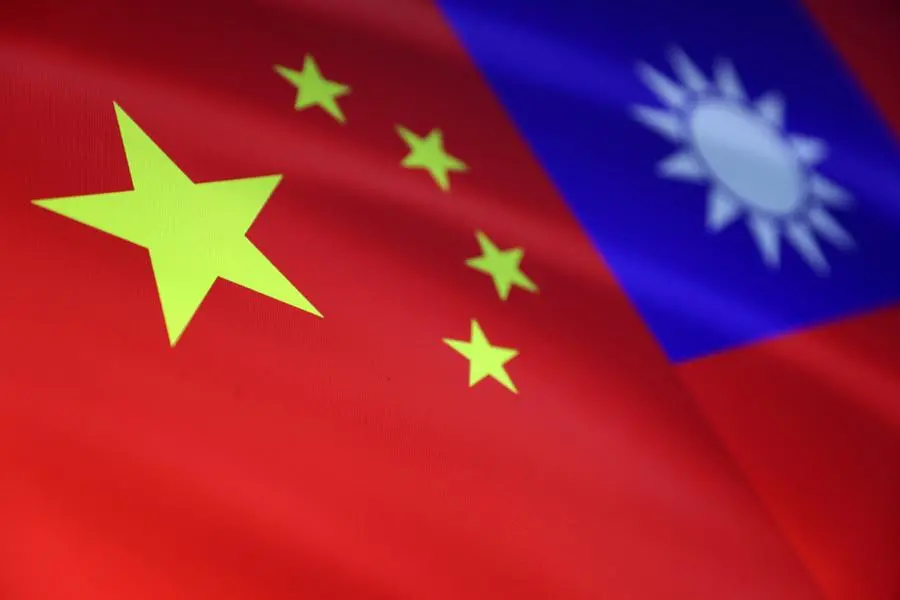PHOTO
Taiwan on Thursday accused China of "typical economic coercion" after Beijing announced the end of tariff cuts on some chemical imports from the island - saying Taipei violated a trade agreement - just ahead of Taiwanese elections next month.
Taiwan's Jan. 13 presidential and parliamentary elections are taking place as China, which views the island as its own territory, has sought to force Taiwan to accept Chinese sovereignty claims.
Taiwan's government and the ruling Democratic Progressive Party (DPP) have repeatedly said China is trying to interfere in the vote, whether by military means or co-opting Taiwanese politicians, to ensure an outcome favourable to Beijing.
China's Finance Ministry said that starting Jan. 1, tariff cuts will be suspended for 12 products, including acrylic and p-xylene, citing "discriminatory prohibitions and restrictions" Taiwan imposed on Chinese exports in violation of a 2010 trade deal.
"It is hoped that Taiwan will take effective measures to lift trade restrictions on the mainland," it said.
China last week said it had determined Taiwan had put up trade barriers in contravention of both World Trade Organization (WTO) rules and the 2010 trade deal.
Taiwan's Office of Trade Negotiations, in a statement after a weekly Cabinet meeting on Thursday, said China was carrying out "typical economic coercion" and that it should stop its "one-sided political manipulation" and have talks under the World Trade Organization, of which both are members.
China's investigation process has been unfair, opaque and not in line with international norms, it said.
"Our government was deliberately skipped over during the investigation process, showing that (the probe's) political aims were greater than their economic ones."
However, the impact of the suspended tariff cuts on Taiwan should be manageable and controllable, it said.
China's Taiwan Affairs Office laid the blame on Taiwan's government, saying the ruling Democratic Progressive Party's (DPP) "stubborn adherence to Taiwan independence" had made it hard to properly resolve problems.
China detests the DPP and its presidential candidate, current Vice President Lai Ching-te, who is leading in the polls, believing they are separatists.
Lai says only Taiwan's people can decide their future and has repeatedly offered talks with China but been rebuffed. (Reporting by Ben Blanchard and Beijing newsroom; Editing by Christopher Cushing and Michael Perry)





















